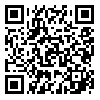1. Page MM, Johnson JD. Mild suppression of hyperinsulinemia to treat obesity and insulin resistance. Trends Endocrinol Metab. 2018;29(6):389–99. [
DOI]
2. Mozaffarian D. Dietary and policy priorities for cardiovascular disease, diabetes, and obesity: a comprehensive review. Circulation. 2016;133(2):187–225. [
DOI]
3. Darebo T, Mesfin A, Gebremedhin S. Prevalence and factors associated with overweight and obesity among adults in Hawassa city, southern Ethiopia: a community based cross-sectional study. BMC Obes. 2019;6:8. [
DOI]
4. Iannaccone M, D’Olimpio F, Cella S, Cotrufo P. Self-esteem, body shame and eating disorder risk in obese and normal weight adolescents: A mediation model. Eat Behav. 2016;21:80–3. [
DOI]
5. Ravary A, Baldwin MW. Self-esteem vulnerabilities are associated with cued attentional biases toward rejection. Personality and Individual Differences. 2018;126:44–51. [
DOI]
6. Almenara CA, Aimé A, Maïano C, Ejova A, Guèvremont G, Bournival C, et al. Weight stigmatization and disordered eating in obese women: The mediating effects of self-esteem and fear of negative appearance evaluation. European Review of Applied Psychology. 2017;67(3):155–62. [
DOI]
7. de-Magistris T, López-Galán B, Caputo V. The impact of body image on the WTP values for reduced-fat and low-salt content potato chips among obese and non-obese consumers. Nutrients. 2016;8(12):E830. [
DOI]
8. Carmona J, Tornero-Quiñones I, Sierra-Robles Á. Body image avoidance behaviors in adolescence: A multilevel analysis of contextual effects associated with the physical education class. Psychology of Sport and Exercise. 2015;16:70–8. [
DOI]
9. Ruffault A, Czernichow S, Hagger MS, Ferrand M, Erichot N, Carette C, et al. The effects of mindfulness training on weight-loss and health-related behaviours in adults with overweight and obesity: A systematic review and meta-analysis. Obes Res Clin Pract. 2017;11(5 Suppl 1):90–111. [
DOI]
10. Mason AE, Epel ES, Kristeller J, Moran PJ, Dallman M, Lustig RH, et al. Effects of a mindfulness-based intervention on mindful eating, sweets consumption, and fasting glucose levels in obese adults: data from the SHINE randomized controlled trial. J Behav Med. 2016;39(2):201–13. [
DOI]
11. Hanson P, Shuttlewood E, Halder L, Shah N, Lam FT, Menon V, et al. Application of mindfulness in a tier 3 obesity service improves eating behavior and facilitates successful weight loss. J Clin Endocrinol Metab. 2019;104(3):793–800. [
DOI]
12. Palmeira L, Cunha M, Pinto-Gouveia J. Processes of change in quality of life, weight self-stigma, body mass index and emotional eating after an acceptance-, mindfulness- and compassion-based group intervention (Kg-Free) for women with overweight and obesity. J Health Psychol. 2019;24(8):1056–69. [
DOI]
13. Choi YS, Kim MA. The effect of mindfulness-based cognitive therapy program on stress, self-esteem and depression of nursing students. The Journal of the Korea Contents Association. 2019;19(2):210–22. [Korean] [
DOI]
14. Sharbaf Olyaie Z, Toozandehjani H, Dehghani Neyshabouri M. Effectiveness of mindfulness-based cognitive therapy on quality of life and body image in women with breast cancer undergoing mastectomy. Iranian Rehabilitation Journal. 2016;14(3):139–50. [Persian] [
DOI]
15. Goldberg DP, Hillier VF. A scaled version of the General Health Questionnaire. Psychol Med.1979;(9):139-45. [
DOI]
16. Coopersmith S. The antecedents of self-esteem. Princeton: Princeton University Press; 1965.
17. Cash TF, Lavallee DM. Cognitive-behavioral body-image therapy: extended evidence of the efficacy of a self-directed program. Journal of Rational-Emotive and Cognitive-Behavior Therapy. 1997;15(4):281-94. [
DOI]
18. Jackson C. The General Health Questionnaire. Occupational Medicine. 2006;57(1):79–79. doi: 10.1093/occmed/kql169 [
DOI]
19. Noorbala AA, Bagheri Yazdi SA, Mohammad K. The Validation of General Health Questionnaire- 28 as a Psychiatric Screening Tool. Hakim Research Journal. 2009;11(4):47–53. [Persian] [
Article]
20. Borji M, Memaryan N, Khorrami Z, Farshadnia E, Sadighpour M. Spiritual health and resilience among university students: the mediating role of self-esteem. Pastoral Psychol. 2020;69(1):1–10. [
DOI]
21. Khodabandeloo Y, Fat’h-Abadi J, Motamed-Yeganeh N, Yadollahi S. factor structure and psychometric properties of the Multidimensional Body-self Relations Questionnaire (MBSRQ) in female Iranian University Students. Practice in Clinical Psychology. 2019;7(3):187–96. [
DOI]
22. Kabat-Zinn J. Foreword: Seeds of a necessary global renaissance in the making: the refining of psychology’s understanding of the nature of mind, self, and embodiment through the lens of mindfulness and its origins at a key inflection point for the species. Curr Opin Psychol. 2019;28:xi–xvii. [
DOI]





